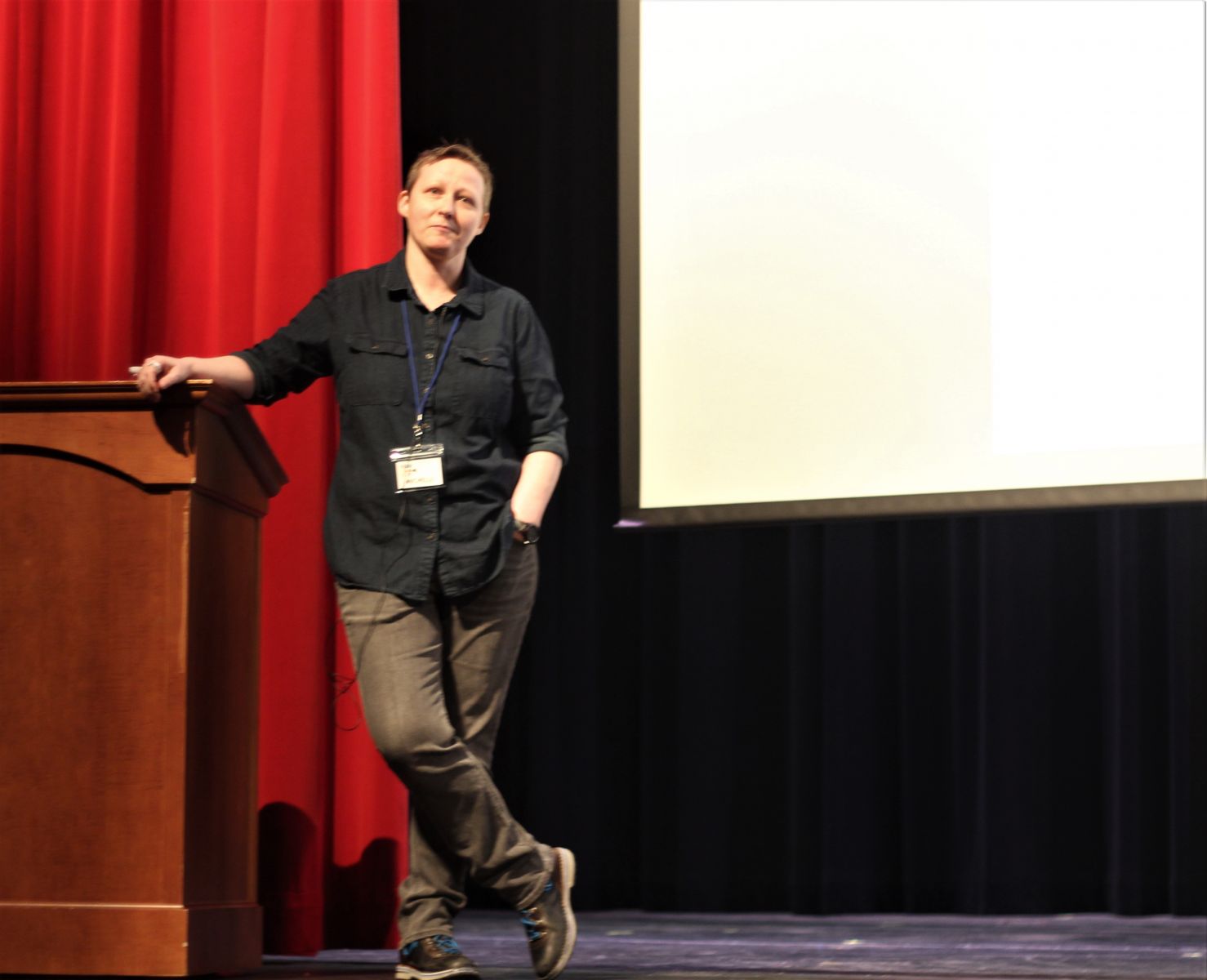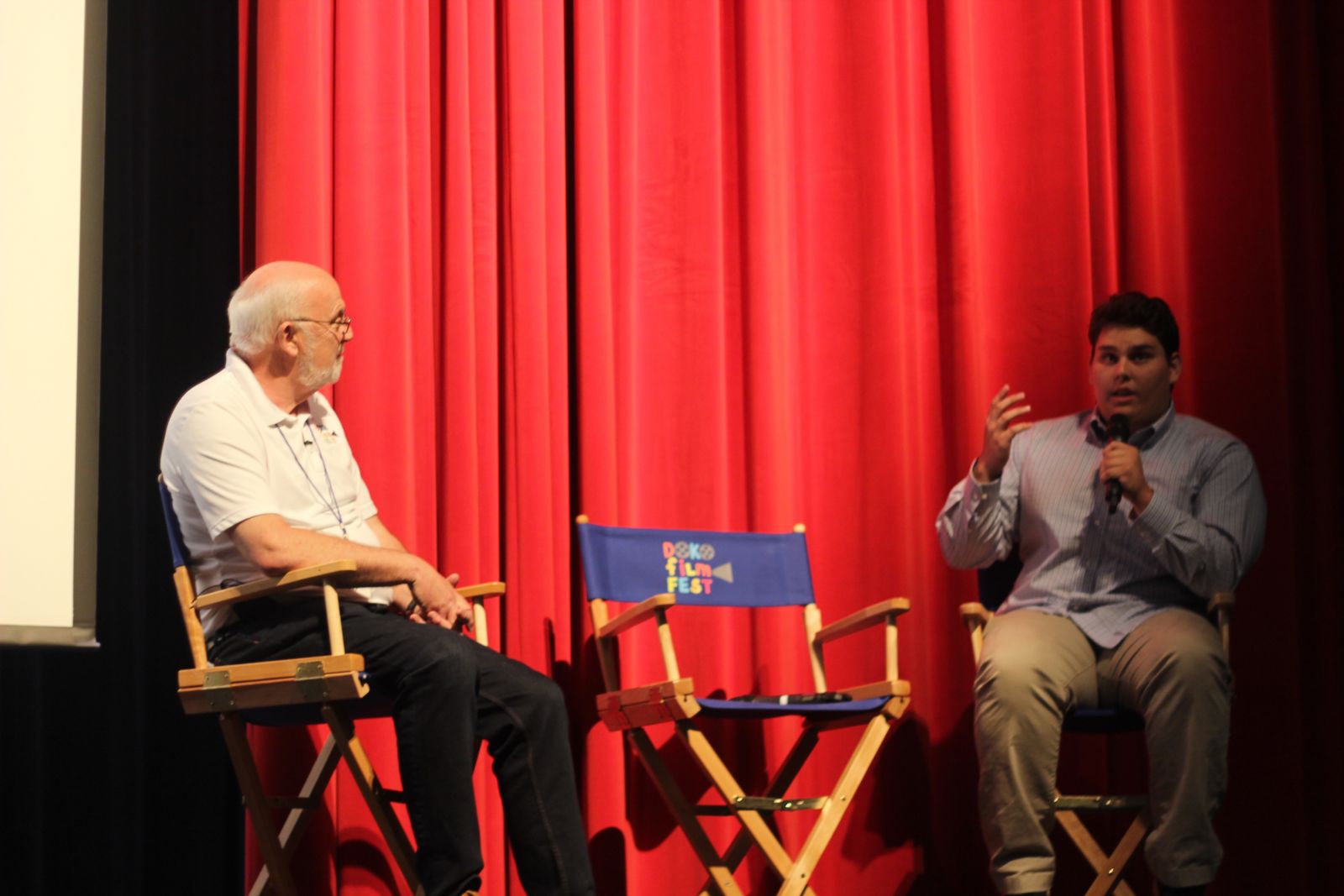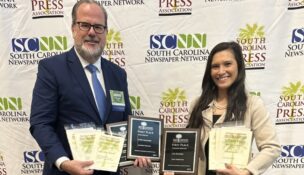Inaugural Doko Film Festival showcases students
Contributing Writer //May 20, 2019//
By Christina Lee Knauss
Blythewood is 2,416 miles from Hollywood, site of the Academy Awards, and 4,550 miles from Cannes, France, where the world’s premiere film festival is held annually.
For two days in April, however, high school students got to feel a little bit of what it was like to attend those two events, which are meccas for who’s who in the movie world. Young people from around South Carolina took part in the first-ever Doko Film Fest, an event which gives high school filmmakers a chance to showcase their creativity and see their vision come alive on the big screen, April 26-27.
The festival featured films that ran the gamut from comedies and documentaries to animation, short subjects and music videos. It also gave students the chance to take part in master classes on camera and lighting techniques, casting and directing, making movies with mobile devices and creating winning films.
There was even the chance to meet and learn from two-time Oscar winner and former Blythewood resident Michelle Eisenreich. Eisenreich scored Oscars for best visual effects in 2017 for Blade Runner 2049 and in 2018 for First Man. The awards came through work she did with her team at Double Negative, a production company based in Vancouver.
 The Doko Film Fest is the brainchild of Blythewood resident Ray Smith, who partnered with Bravo Blythewood, a local nonprofit that promotes the arts, to make the festival a reality.
The Doko Film Fest is the brainchild of Blythewood resident Ray Smith, who partnered with Bravo Blythewood, a local nonprofit that promotes the arts, to make the festival a reality.
Smith, originally from the United Kingdom, has a background in health care and business education. He currently serves as associate dean of executive development at the University of South Carolina’s Darla Moore School of Business.
He discovered the power of film as an educational tool many years ago and co-owns Modos Media, a company that produces documentary films for television.
The idea for the Doko Fest came to Smith after he made a documentary with his son that was later selected for the Beaufort International Film Festival. After attending that festival, he realized that there were few such events for high school students who wanted to showcase their work. The idea for Doko was born. Doko, believed to be a Native American word for “watering place” or an African word meaning “where the iron horse drinks,” was the name originally given to the area that became Blythewood.
“We want to encourage high school students to tell their stories through their films, give them a chance to show them to the public and get some reaction,” Smith said. “These students have a lot of imagination, and they are at a stage in life where they are deciding the direction they want to go in, and we wanted to provide an avenue for those who want to try film.”
Once he decided to give Doko a go, Smith had no idea how many students would participate. The results were far beyond his expectations. Sixty student filmmakers from around South Carolina and as far away as Texas, California and Canada entered the competition. A panel of professional judges winnowed the entries down to 13, which were shown at the festival. Eisenreich was part of a panel of five judges who then decided the festival winners.
The panel included Ron and Rebecca Tucker, directors of the Beaufort film festival; as well as Xavier Blake and Titus Davis, award-winning producers at South Carolina Educational Television.
Eisenreich jumped at the idea to take part in Doko when Smith contacted her. She said that nothing remotely like the festival existed when she was a student at Spring Valley High School, a time before Blythewood’s explosive growth when the opening of the local McDonald’s was considered a big
event.
“I had an interest in film in high school but there was no program that gave me an opportunity to explore it back then,” Eisenreich said. “I wanted to be part of this because I want to do anything I can to give kids a chance to explore their creativity.
“I’ve been really impressed with the quality of the films they submitted as well as the variety of subjects.”
Eisenreich said today’s technology offers student filmmakers a range of choices on how to bring their vision to life.
“It’s crazy to see all the different things they can use to make films, from sophisticated cameras to smartphones,” she said. “When I was a student, VHS cameras were about all we had to work with. Today’s technology makes creativity much more accessible. There are almost too many formats.”
The range of technology was evident in the entries. Several of the student films were shot exclusively on smartphones, such as The Watch, a thriller/fantasy by Spencer Winburn of McBee. Other entrants used a variety of high-end cameras such as the Canon C-100, the device of choice for Aaron Falls, 18, who worked with a team of students from Clover High School to produce the suspenseful Driven.
Falls said the team developed the idea for the film and produced it over a period of about a month earlier this year.
“I’ve definitely enjoyed being involved in this festival because it gives you a new perspective on making films,” Falls said. “It’s a new experience to see your work on a big screen.”
 Doko came with many of the trappings of larger festivals. Participants learned how to explain their vision and discuss their work. In between screenings, entrants stood for photos in front of a wall with the Doko logo and answered questions from student journalists from Westwood High School.
Doko came with many of the trappings of larger festivals. Participants learned how to explain their vision and discuss their work. In between screenings, entrants stood for photos in front of a wall with the Doko logo and answered questions from student journalists from Westwood High School.
After each film ended, the student director, writers and other participants came to the stage to answer questions from Smith and the audience, in an informal style reminiscent of the popular Inside the Actor’s Studio show.
South Carolina students won three of the festival’s five awards: Best in Festival and Best Short Film (Local Hero by Luke Evans), Best Music Video (Queen and King by Hailie Gold), and Best Documentary (Being Anthony Stewart by Madison Taylor). Entries from Texas won two awards: Best Animation (Forbidden Fruit by Sophia Rigg) and Best Comedy (Now Hiring by Jack Mathews.)
The five winners were symbolic of the range of styles and genres on display at Doko. Evans’ Local Hero is a small-town crime thriller with a plot twist, while Forbidden Fruit is a surreal, sci-fi, animated horror tale that is also a bit of tearjerker. King and Queen King told a story of friendship turned to obsessive violence.
Next year’s Doko Fest is in the works and is scheduled for March 13-14, 2020.
t















